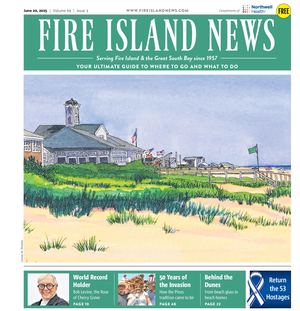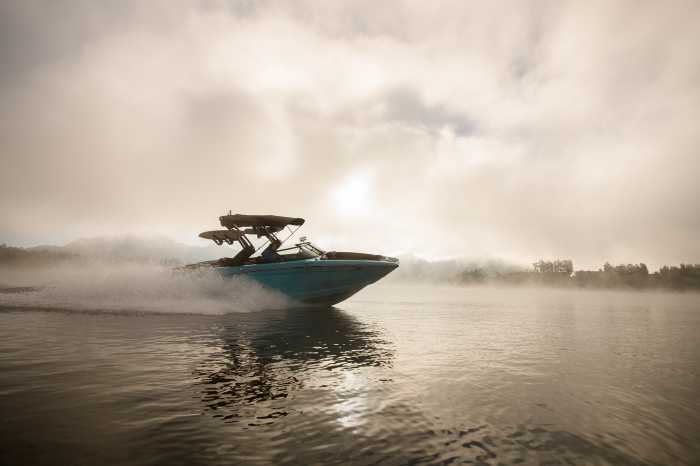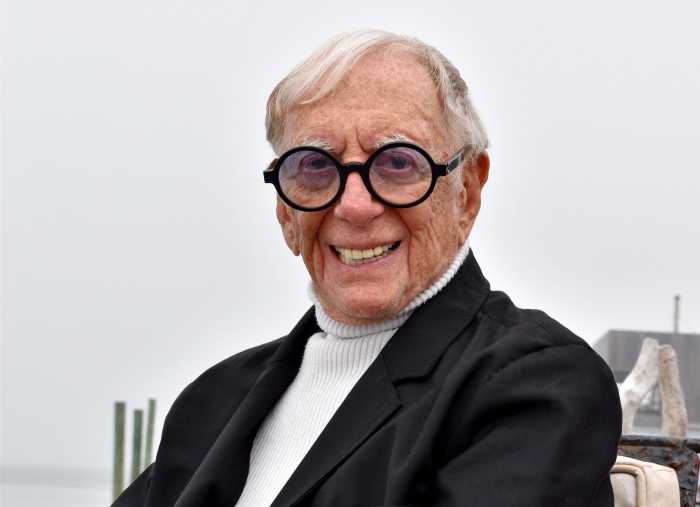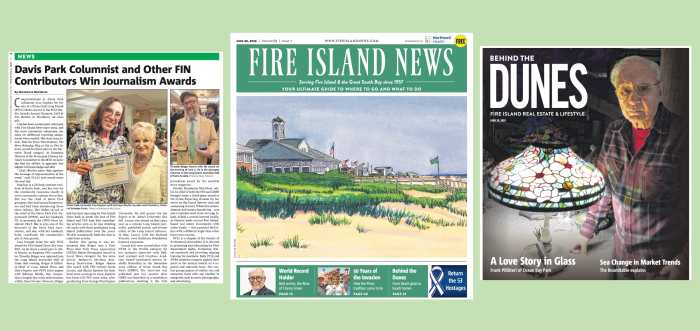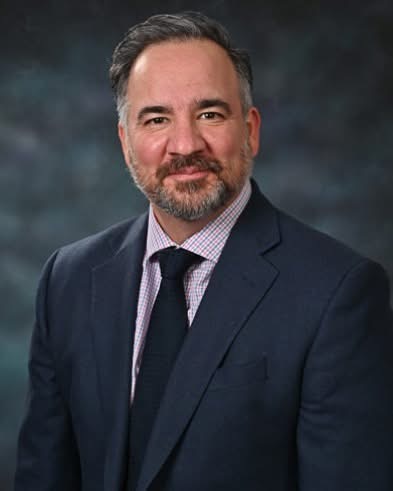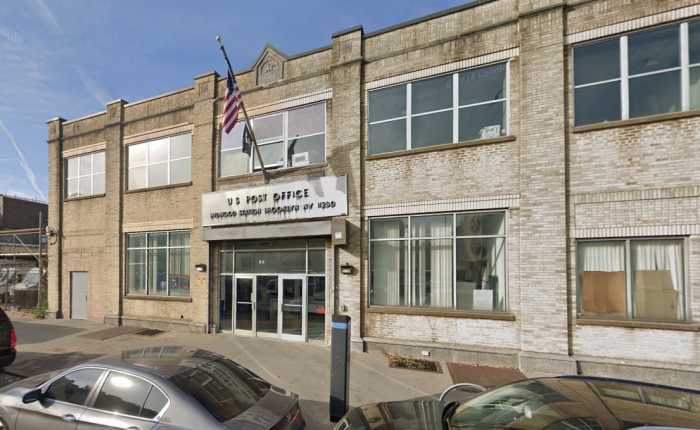
Known in the travel industry as The Travel Detective, the world-renowned travel news reporter and producer Peter Greenberg grew up in Ocean Bay Park, and has been a volunteer firefighter on the island since age 18, and is still responding to calls today. He travels the world reporting on travel and beautiful destinations. Greenberg is an Emmy Award-winning investigative reporter and the travel editor for CBS News, appears on “CBS This Morning,” and hosts the television show” The Travel Detective with Peter Greenberg,” among others.
The Fire Island News (FIN): You grew up on Fire Island and even delivered Fire Island News as a kid! Did Fire Island have any influence on your career path and where you are today?
Peter Greenberg (PG): Well travel is all about the process so if you can navigate the 32 miles of Fire Island, you can do anything you want. You learn all sorts of laws about physics, time, distance, inertia, people’s personality, you’ll find it all throughout Fire Island. Whether you’re walking, biking, running on the beach or swimming, what a great way to grow up. And yes, I did deliver the Fire Island News all over Fire Island either by hand or by boat and it was an experience I’ll never forget.
FIN: You’ve mentioned Fire Island in other interviews, what makes Fire Island important to you? In other words, what keeps you coming back?PG: Fire Island for me, it represents your innocence and your youth, your freedom, your independence, and that’s never left. Every time I come back here those four things are waiting for me and I embrace them all. Fire Island doesn’t have the infrastructure that other very popular destinations have and that’s a very good thing. When you think about it from a child’s perspective or parent’s perspective, what an incredible place to grow up. It doesn’t give you a false sense of security. It gives you a real sense of what your boundaries really are and what your future can be.
FIN: You began as a West Coast correspondent for Newsweek in Los Angeles and San Francisco. Where did you go from there that led you to becoming the well-known travel reporter that you are now?
PG: Reporting for Newsweek I was on a plane just about every other day. I was running around the world not just the neighborhood, and it dawned on me from a very early part of my career that no one was really covering travel as a process. No one was covering travel or transportation as an essential component to your existence. It’s one thing to talk about beautiful Bermuda or lovely London, it’s another thing trying to figure out “how do I even get there.” When you ask kids today where food comes from, they tell you the store, that’s a problem for me. So what I did was I used my access as a journalist to really immerse myself in the process of travel. I basically worked as a flight attendant, I learned in the simulators about being a pilot, I went to other institutions to learn how to be a captain on a ship, not to mention a waiter or a bus driver. Using that, and continuing to use that, it allows me to understand the process, and to ask the right questions so that I can explain the process and the product to everybody else.
FIN: Travel Weekly named you one of the most influential people in travel and you are honored in the U.S. Travel Association’s Hall of Leaders. What was your reaction and what did it mean to you to be recognized this way?
PG: It’s always wonderful to be recognized that way but along with that comes responsibility. So I still train in the simulators, I still train in the real world in the process of travel. If you don’t do that then you’re not going to be helpful to people. So getting those awards was great but it was a reminder of how you got there, and what you have to continue to get to a period of understanding, get to a point of realization, and most importantly context and perspective. It’s not enough to say a flight is three hours between A and B, you need to add so much more to it so that you understand what went in it, what continues to go into it, and what your responsibilities are even as a passenger. Travel is the largest industry in the world. It’s over 11 percent of global GDP. It’s one out of every 10 jobs. It’s one out of every five new jobs. When do we realize that? Well maybe you won’t until a volcano explodes in Iceland, or planes fly into the World Trade Center, or we have a pandemic. Anybody reading this right now will know what I’m talking about. We realize not only the importance of travel from a business perspective, but we realize how important it is for our own sense of well being. We don’t travel because we want to travel. We travel because we need to travel. It’s part of our cultural DNA, and a lot of that is what I report about.
FIN: You host the “Peter Greenberg Worldwide Radio Show.” Can you tell me a bit about it and what your inspiration was to begin this show?
PG: I’m in a different location in the world just about every week anyway, so why not do a radio show, which is three hours, and interview and have conversations with the leaders of travel and those industries in a very real way every week, and that’s what I’ve done for 23 years now. We do that three-hour show from a different location in the world every week and that location has included Fire Island many times. For example, last week I was in Hawaii, the week before I was in Tanzania, the week before that, I was in Alabama, the week before that I was in New York, and the week before that I was in Croatia. So it’s never changed and yet it always changes.
FIN: In addition to written work, you host “The Travel Detective,” a show where you share things such as travel news, important information, and insider secrets among other things; you report on CBS; and you host a radio show. What is your favorite format of reporting?
PG: My favorite format of reporting is basically identifying a problem, understanding the process, and then solving it. Because if you think about it, in your own travel experience there are about 47 different points of abuse that await you from the moment you decide to go somewhere to the time you finally come home. Those points of abuse haven’t disappeared at all but if I’ve done my job correctly, I’ve helped you mitigate them, minimize them, or eliminate them so you could actually have a great experience along the way, and that’s really what I do.
FIN: You are well known for your worldwide reporting, what experience or story have you reported on that is memorable to you?
PG: Wow, that’s a tough one. In its most simple terms, every travel moment has an impact on you if you stay in the conversation and you ask the right questions, then you learn so much. I learned this from my mother, you talk to everybody. And it’s not about you it’s about them. Then you learn so much … whether it’s the cab driver taking you to the airport, whether it’s the captain of the cruise ship, or the waiter at the restaurant. Whether it’s the guy in the back of the restaurant you never see who’s throwing out the garbage, everybody has a story to tell and my challenge – which I accept readily – is to hear those stories and then make them relatable to the audience.
FIN: Do you have a favorite place you have visited, and can you tell me a bit about why it is your favorite?
PG: Well I judge the best places in the world on a different metric than others. For me it’s based on where I sleep the best. Where you sleep the best is where you think the best, where you create the best, it’s where you love the best, and it’s also a place that you always want to return to because you realize right away that you get all those things. So there are about 20 of those places in the world and I’m very happy to say Fire Island is definitely one of them. Think of your own experience, when you’re on the bay you’re on Fire Island, you hear the ocean. The sound of a screen door closing, the sound of the wind as it hits the bay, the smell of the brine, the salt water in the Great South Bay, or on an early morning walk along the ocean. That to me induces you. You have no choice but to sleep the best. So why wouldn’t I come back time after time, and I have since I was 6 months old, I’m here. So, for that, I thank my parents because they came here in 1950. My most enduring friendships are the friendships I’ve made on Fire Island. They’re the ones that continue to this day. There are a group of four of us who either grew up in Seaview, Ocean Bay Park or Ocean Beach from the age of 5, and every Saturday, no matter where we are in the world, we talk to each other at 11 o’clock in the morning. In my case, that could be three in the morning, based on where I am in the world, but it doesn’t matter. You never miss those calls because those calls are a reminder to you of where it all happened.
FIN: Is there anything else you would like to speak to or something I may have not mentioned?
PG: Well yeah, because at the end of everything, and when all is said and done, you sit here on your deck, and you look at the bay, and you see your little 13-foot Boston Whaler that you got when you were 14, and that you still have today, and that you still use today, and it’s a reminder to you of the enduring quality, of the enduring beauty, and the enduring energy of Fire Island and that’s what keeps you coming back. All the other things you go through, the constant remains your experience on Fire Island. My boat is 57 years old. I got it brand new and I’ve kept it brand new. I’ve restored it. It’s had about seven different engines but it’s the same boat. Every time I see that boat it reminds me of all the good things about Fire Island. About just running wild on the bay, the salt water in your face, and happily so. Somebody is always asking me where my favorite places in the world are, it’s a no-brainer. I’ve been to very many beautiful places, I’ve been lucky. I’ve been blessed to have those experiences. But at the end of the day, I still want to hear the screen door slam.
